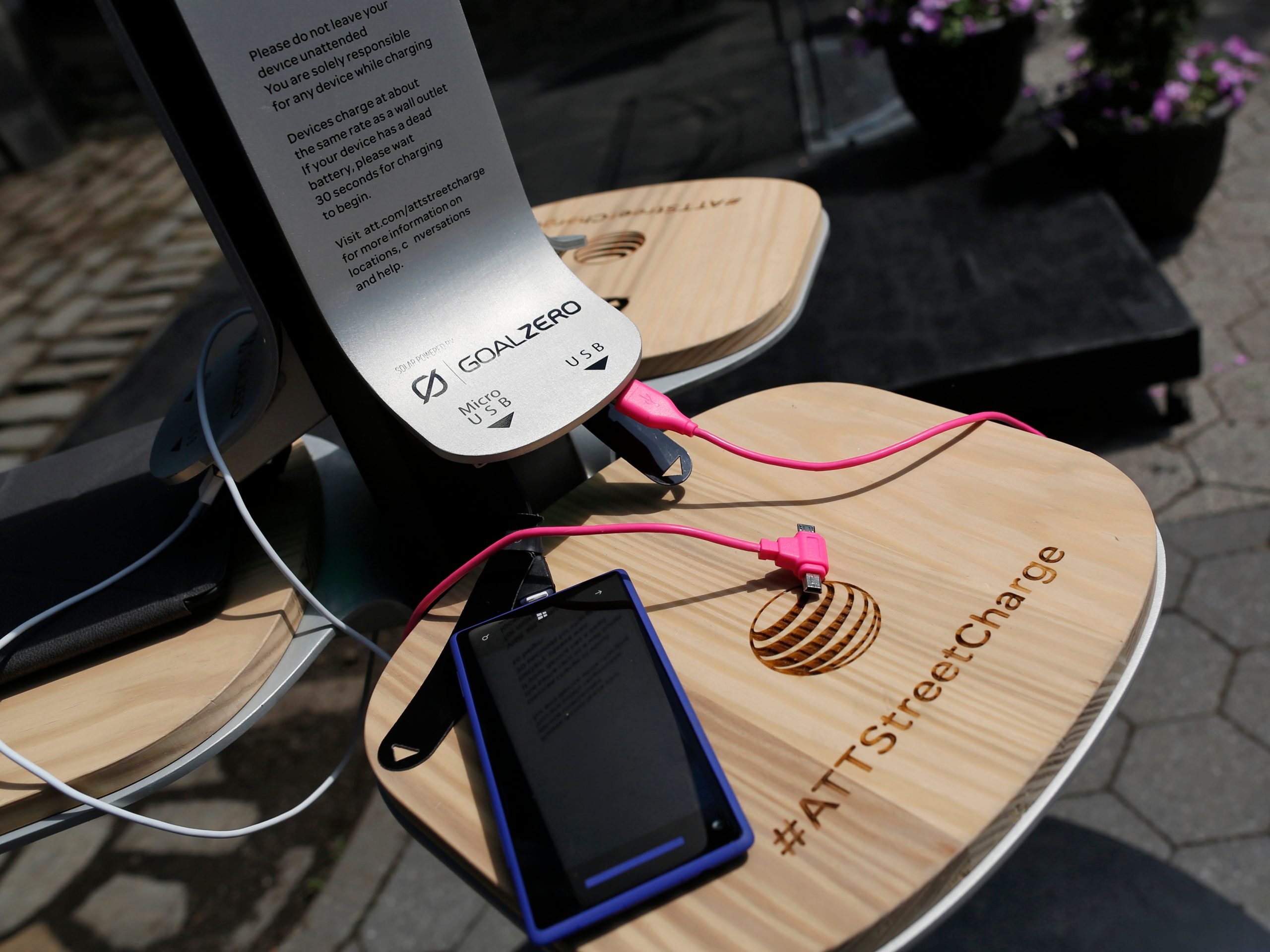- The LA District Attorney’s office recently warned about possible malware at charging stations in airports and train stations this holiday season.
- Other people could gain access to data on your phone through “juice jacking,” which uses a USB charger to transfer information along with power as you charge.
- To keep data safe, travelers should bring their own chargers and only plug into outlets, and use “USB condoms,” for extra protection.
- Visit Business Insider’s homepage for more stories.
A public charging station can look like an oasis to a traveler with a dying phone, but it might not be worth the risk, according to the LA District Attorney.
The LA DA’s office put out a warning in early November ahead of the busiest travel day of the year advising travelers to avoid public charging stations. Although uncommon, criminals could compromise charging stations with malware and use the cables to infect unsuspecting users. The malware could be used to access data, including passwords and videos, from attached phones.
Apple fixed a vulnerability to compromised chargers in iOS 7 back in 2013, but it’s better to be safe and avoid using a public charging station regardless of the type of phone you have, the LA DA writes. Security expert Brian Krebs wrote that the risk to the average person for this kind of “juice jacking” was low, but the threat does exist.
The LA DA recommends travelers carry their own portable chargers and bricks, and only plug them into AC outlets, avoiding USB charging stations. You can also stock up on charge-only USB cables, which prevent your device from sending or receiving data through the cable. Security researcher Vyas Seker in The New York Times recommended using “USB condoms,” or devices that attach to the end of a USB cable and disable the data pin, preventing data transfers.
Finally, if you see an alert on your iPhone asking if you want to trust the device, disconnect immediately, because that means it is not only charging your phone.

